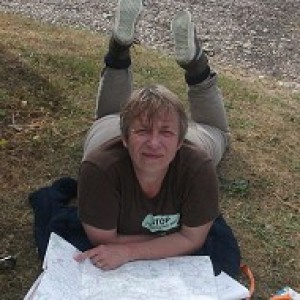WW1: Patriotic poem from ?1916
This highly patriotic verse comes from a family album, written during the first world war.
A stands for Army the men at the day
B for British, the best of the fray
C stands for country which answered the call
D for Dreadnought, the mightiest of all
E stands for Enemy alias the Huns
F for Fools who face British Guns
G stads for Germans who fancy their luck
H for Hell which we gave old Van Kluck
I stands for Italy who is helping France
J for Japan who is waiting her chance
K stands for King George, the monarch of Britain
L for Loyalty his subjects have given
M stands for Murder by U boats and Zepps
N for New Army now making great stepps
O stands for oficers who great deeds have done
P for Peace everlasting when Victory is won
Q stands for "Queens" the regiment of fame
R for Russia who have much to their name
S stands for shells, the girls are supplying
T for Taulies(?)* these shells are destroying
U stands for Union,the motto of the Allies
V for Victory the Kaiser just fancies
W stands for War that will win the Worlds peace
XYX so what about Greece?
I suspect the references to Russia and Greece put this doggerel in 1916 but am happy to be corrected..
I can't find any reference to this poem online so it might have been composed by Charles Haig - father, brother, or cousin of the John Haig who kept this album - and filled it full of pictures of pretty girls (and sentimental observations on marriage). He clearly loved to draw though he was perhaps a better copyist than an artist.
We have a school report for him dated 1913, when we hear that his conduct was 'Ex' but by 1917 he was serving on the destroyer HMS Sybille as a contemporary photo attests, in which he looks very like my son and his father.
Unsurprising as he is their great, and great great grandfather respectively...
PS My friend Mary writes: Could be Taubes - British troops referred to all German aircraft as 'Taubes', as in: "Many of the terms for weapons and artillery were remarkably similar on both sides of no man’s land, indicating a similarity of attitude, that the soldier had two enemies, the opposing forces and the war itself. Germans and British used the same terms for the German stick-grenade – a potato-masher – both sides had a ‘Black Maria’, and both sides used a German name for an aeroplane – a ‘Taube’ ".
- 0
- 0
- Fujifilm FinePix S8600 S8650 S8630
- 1/34
- f/2.9
- 5mm
- 800

Comments
Sign in or get an account to comment.


